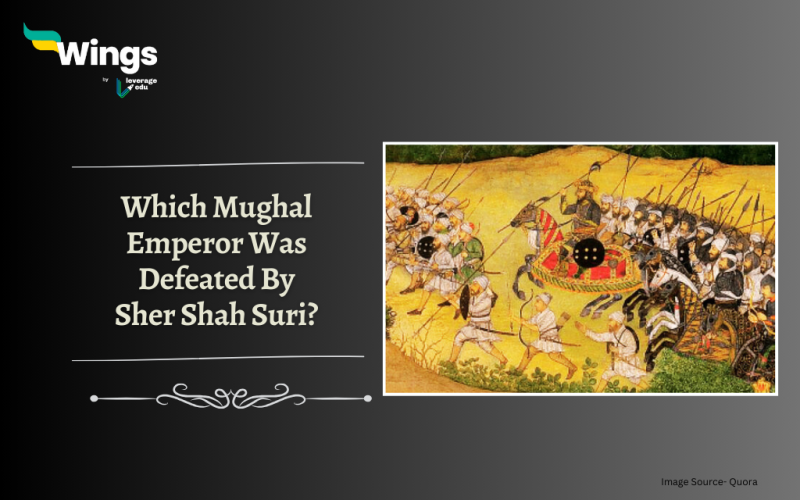Sher Shah Suri was a formidable ruler who rose to power in 1540 after defeating the Mughal Emperor Humayun. His victory over Humayun marked a significant turning point in the history of India and had far-reaching consequences for the Mughal Empire. Sher Shah Suri, also known as Sher Khan, was the founder of the Sur Empire in North India. He was a brilliant military strategist and administrator who implemented several reforms in the region.
Sher Shah Suri is perhaps best known for his victory over the Mughal Emperor Humayun at the Battle of Chausa in 1539 and the Battle of Kannauj in 1540. In this blog, let’s find more details about which Mughal Emperor was defeated by Sher Shah Suri.

The Defeat of Humayun
Humayun, the son of Mughal Emperor Babur, faced a formidable challenge in Sher Shah Suri. Despite being a skilled military commander, Humayun was unable to withstand Sher Shah’s relentless attacks. At the Battle of Chausa, Sher Shah decisively defeated Humayun, forcing him to flee from India.
Also Read – How Did Babur Die?
The Battle of Kannauj
Following his defeat at Chausa, Humayun sought to reclaim his lost empire by engaging Sher Shah Suri in battle once again in the year 1540. The two forces clashed at Kannauj, where Sher Shah emerged victorious yet again. Humayun was once more defeated and forced to seek refuge in Persia.
Humayun’s exile in Persia allowed Sher Shah to consolidate his power and establish the Sur Empire in North India. Although Humayun eventually returned to reclaim his throne with the help of the Safavid Empire.
Also Read – How Did Humayun Died?
In conclusion, it was the Mughal Emperor Humayun who was defeated by Sher Shah Suri in the battles of Chausa and Kannauj. Sher Shah’s victories marked a turning point in Indian history and set the stage for the rise of the Sur Empire. The conflict between these two powerful rulers showcases the complex and dynamic nature of medieval Indian politics.
Relevant Blogs
This was all about which Mughal emperor was defeated by Sher Shah Suri. If you want to know more about topics like this, then visit our general knowledge page! Alternatively, you can also read our blog on general knowledge for competitive exams!
 One app for all your study abroad needs
One app for all your study abroad needs













